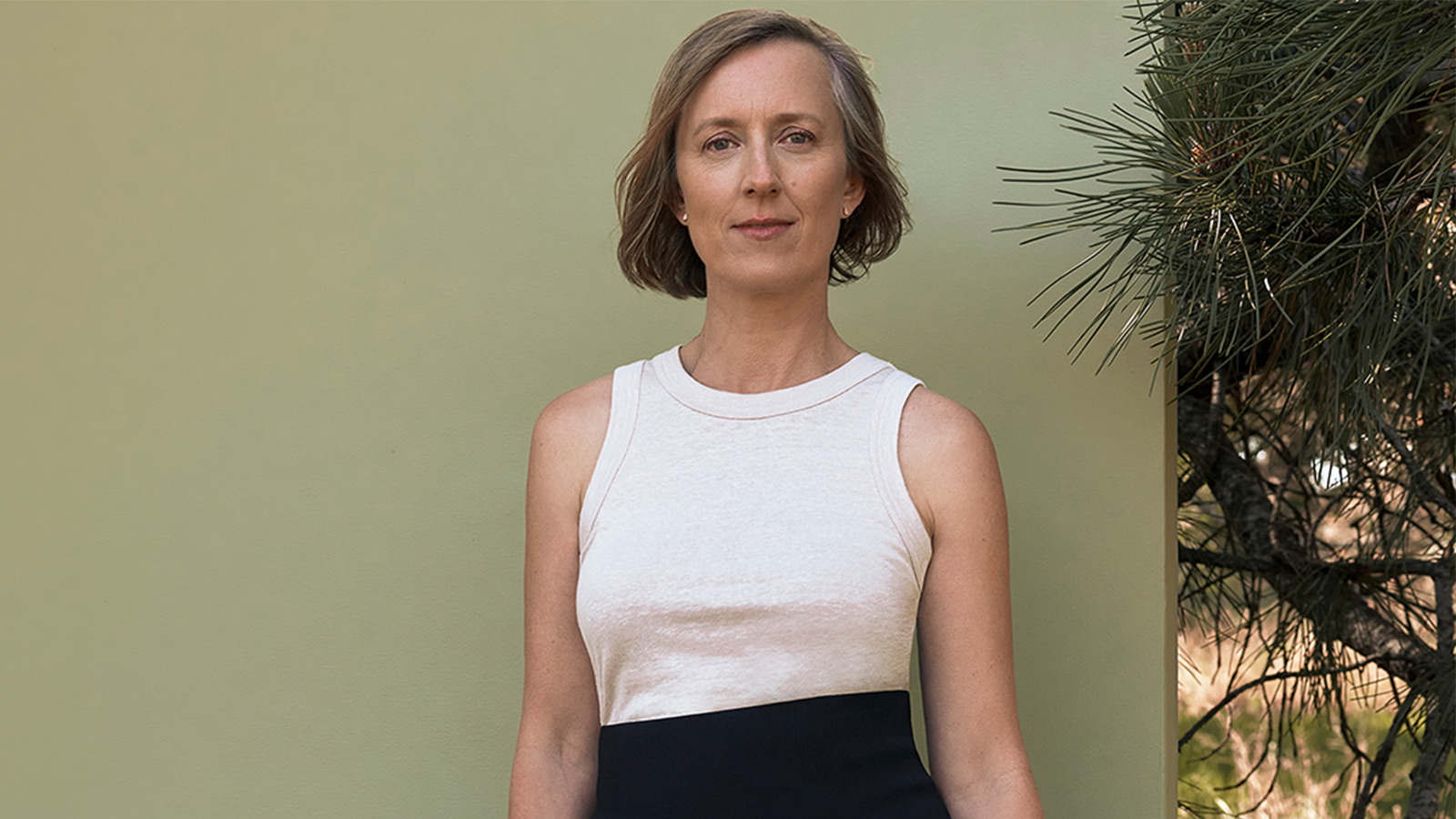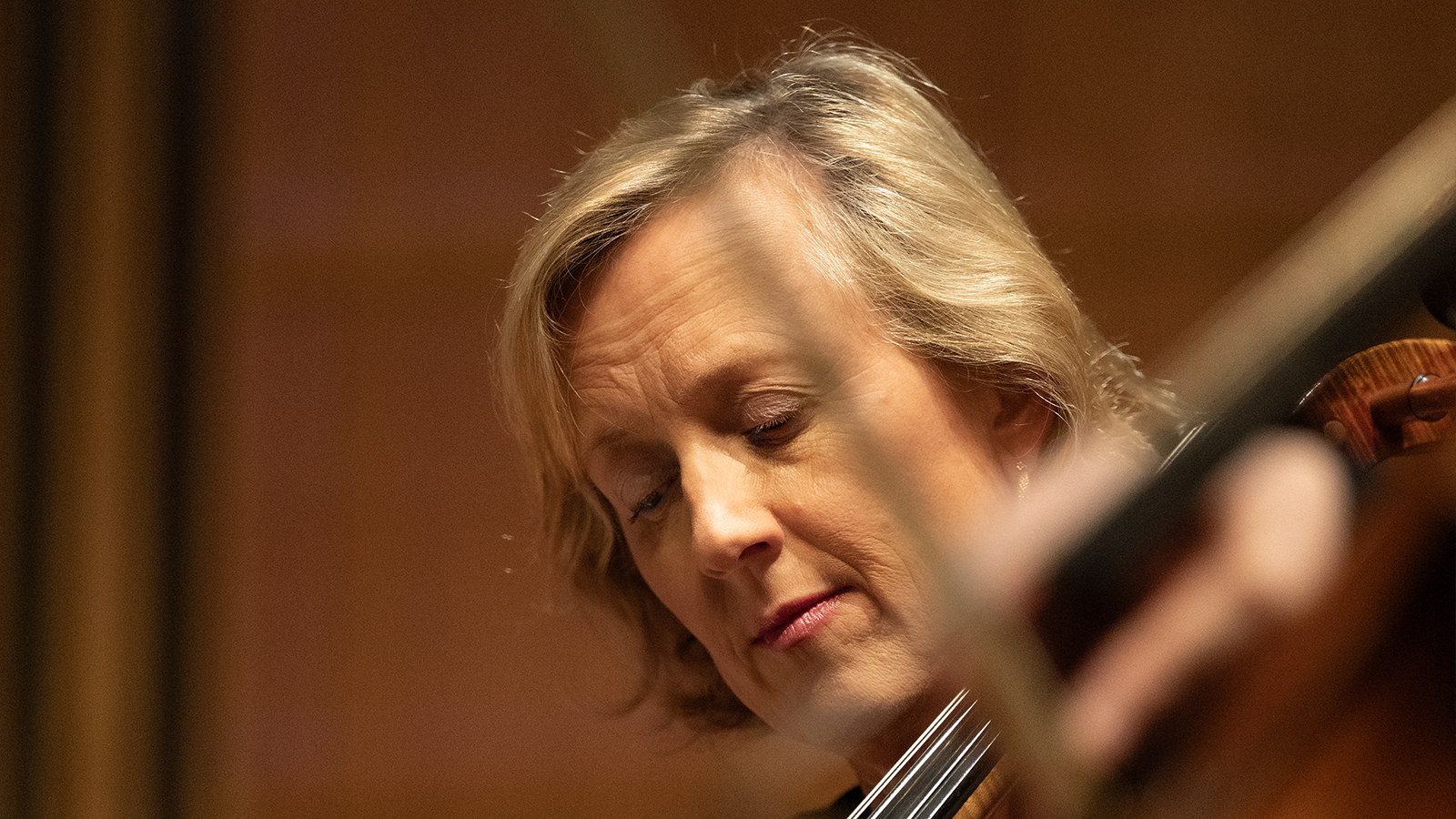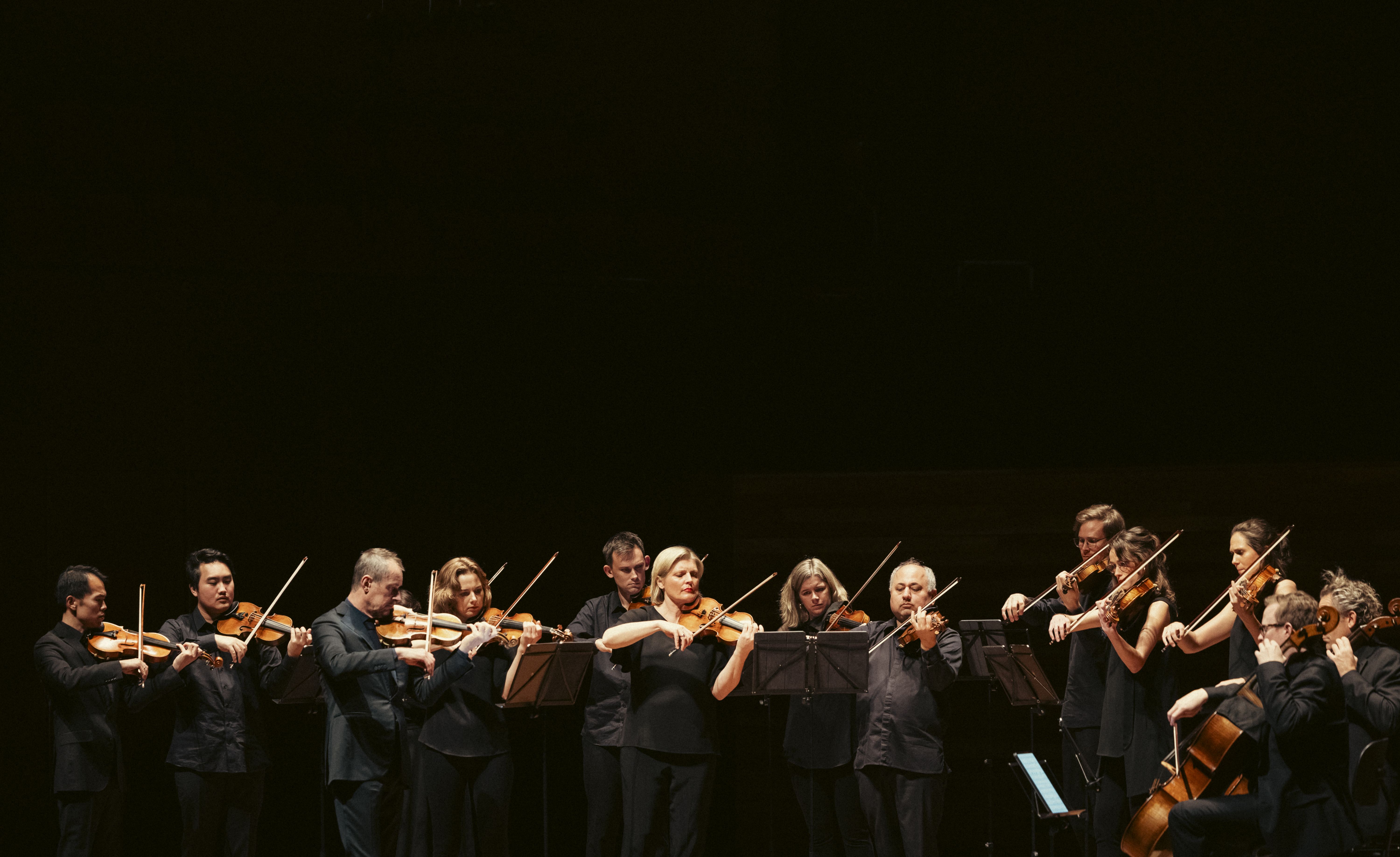
By Kate Holden
This year, Melissa Barnard marks her 30th anniversary with the Australian Chamber Orchestra. But music was at the centre of her life long before her time with the ACO. Before she was born, Melissa’s young father left his home in Australia, paying for his passage to Europe by working as a ship’s doctor on his way to study opera in Vienna. There, he performed on stage to acclaim as a tenor with professional opera companies including Die Wiener Staatsoper and Oper Frankfurt, and later brought his talents back to Sydney.
Melissa’s mother, who met her husband when she was singing in a choir, was an accomplished contemporary dancer. Their home in Sydney brimmed with music, dance, literature and art and Melissa was learning dance and playing piano from five. At eight, when she heard Camille Saint-Saëns’ Carnival of the Animals, she chose the warm sound of the Swan: the cello.
The cello has been a companion ever since. Once she found the instrument, she found herself drawn to Olivier Messiaen’s Quartet for the End of Time, the challenges of Bach’s cello suites and chamber works by Beethoven, Bartók and Shostakovich. By 14, she had decided cello would be her career.

Several years spent studying and performing as a chamber musician in the United States convinced Melissa that the country would remain her home. But then she heard of an opening in the ACO, newly renovated by its young artistic director Richard Tognetti, and was drawn to an ensemble that paired a chamber music ethos within the setting of a string orchestra.
“The wonderful thing about the ACO,” she observes, “is the fact that it was created by the musicians. There was always a deep commitment to the art. Now it’s a much more professional outfit, but we try to keep the music the focus of everything.” That commitment, the standard of the performers “and the freedom we have to be a little different” are what have kept her travelling around Australia and the world with the Orchestra for the 30 years since then.
And now, Melissa and her partner, US-born Sydney Symphony Orchestra double bass player Steve Larson, have busy careers as professional performers, while their daughter learns both the piano and the violin.
It’s a physically tiring job, she says. “I think we exist on a little bit of an adrenaline curve a lot of the time… but playing music is compelling and I like entering the different worlds of different composers. As performers we inhabit those pages for a time and then try to express onstage those very particular and detailed worlds.”
“The wonderful thing about the ACO is the fact that it was created by the musicians. There was always a deep commitment to the art.”ACO Cello Melissa Barnard
To play Bach in the right way for Bach, to embrace the flex and suppleness of modern performance styles, to express the bigger story of a composer’s art and communicate that to an audience: for Melissa, the ACO is the best place to enjoy those challenges. “I think of the Orchestra as a living organism,” she says. “Everyone in the ACO has some kind of personal quirk and special quality, but we have common cause when we play together. It’s liberating, to express and share something bigger than yourself.”
Among her favourite ACO experiences are the exceptional guest artists she has played with and working with them so closely, playing in many of the world’s great concert halls, and the frequent tours that made London and New York into familiar cities.
Melissa particularly enjoys playing an active role in the ACO’s Learning & Engagement programs, including mentoring the ACO's Emerging Artists and working alongside these musicians in ACO Collective.
“It’s healthy to get off the ‘pedestal' of the big stages,” she says. “Workshopping music in depth with students and young professionals is not only intensely focused but also artistically luxurious. To have this time to explore is essential.”
“It’s healthy to get off the ‘pedestal' of the big stages. Workshopping music in depth with students and young professionals is not only intensely focused but also artistically luxurious. To have this time to explore is essential.”ACO Cello Melissa Barnard
She tells me of the satisfactions that come with the variety of alternating between large orchestral performances and intense, smaller chamber works. “We play quartets, solos, symphonies… the ACO is many things, but there is rarely a dull moment – and mostly, they are in airports.” she laughs. And how, playing with so many long-known colleagues, “I find that, just looking across at the person next to me, it draws you into what you’re doing, and out of yourself. The goal is not to be in ‘yourself’ – it has to be something better than that.” The ACO, for Melissa is summed up in three words: dedication, intensity, communication.
One of her favourite moments is when she can find a moment on the concert stage in the hours before a performance. “You feel this special, heightened quiet.” she says. She will play a few notes, breathe and ground herself, “in that golden space, hearing the sound of the cello spin out into the acoustic”.
By Kate Holden
Kate Holden regularly contributes to The Saturday Paper and other publications. She is the author of In My Skin: A memoir (2005), and The Romantic: Italian nights and days (2010). The Winter Road: A Killing in Croppa Creek (Black Inc, 2021) won the Walkley Book Award and the NSW Premier’s nonfiction award. A book of linked essays will be published in 2026.
Hear Melissa perform with the Orchestra in ACO Unleashed, touring to Canberra, Melbourne, Adelaide, Perth, Sydney and Brisbane, 21 Jun – 2 Jul. Click here to book tickets.
